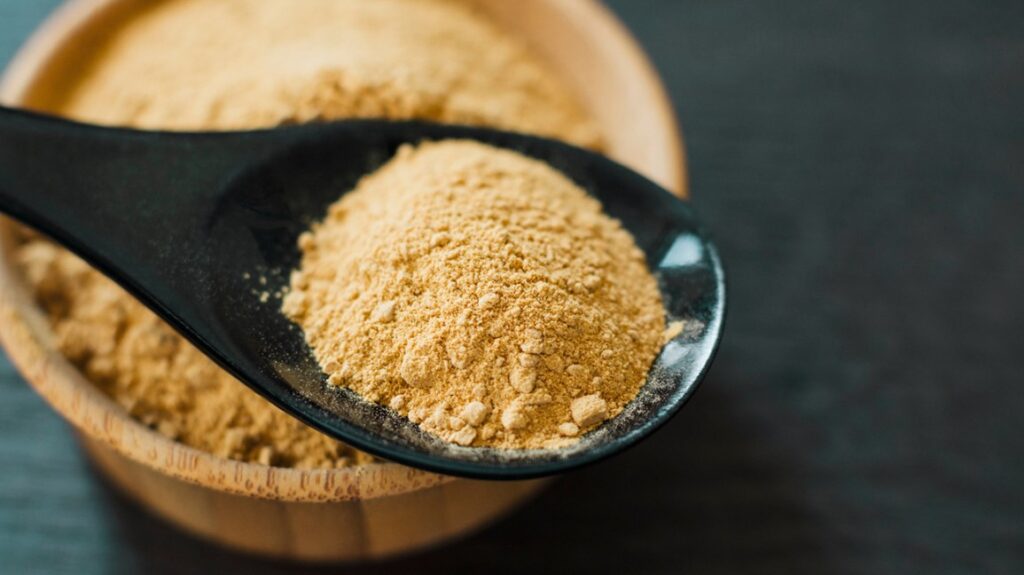Women's Health
What is Maca and Why is it Helpful for Menopause Support?*
Menopause impacts the lives of millions of women each year. While it is a naturally occurring condition, it still has many symptoms requiring support. Some women rely on Hormone Replacement Therapy or other medicines for relief, but there may be natural solutions to consider.
Maca, scientifically referred to as Lepidium meyenii, is a plant from the Peruvian Andes Mountains, where people have been using it for years as a food and medicine source. Maca is similar to other cruciferous vegetables, such as broccoli or cabbage, and it is often used in a fermented drink or porridge. However, its root is chock-full of amino acids, vitamins, and minerals that some believe may promote health benefits such as relieving menopause symptoms.*
Let’s delve deeper into understanding what maca is and how it may be helpful for menopause support.*

Studies Suggest Maca May Relieve Menopause Symptoms*
First, let’s discuss the core symptoms of menopause, including hot flashes, vaginal dryness, sleep disruption, and mood changes. These natural changes occur due to the decline of estrogen in the body and can significantly impact a woman’s quality of life. It’s no secret that anybody going through this transition will likely search for support. One option may be maca. Limited studies suggest maca may reduce hot flashes, sleep interruptions, and other symptoms. Let’s take a closer look at one of the studies in question.*
Nutritional Management Study
In this study, a 32-year-old woman started experiencing classic menopausal symptoms, including hot flashes, anxiety, and sleep disruption after a hysterectomy. She was given a personalized nutritional plan (including maca), nutrient supplementation, and other lifestyle recommendations. After two months, the hot flashes and anxiety were gone, and the sleep disruption and mood changes were improved. This study suggested that consuming maca and implementing other dietary and lifestyle changes positively impacted menopause symptoms.
While there are some favorable outcomes, researchers indicate that more studies should be done to better understand the safety and effectiveness of using maca for menopause support.*
In another study of 122 women experiencing moderate to intense menopausal symptoms, the product Warmi was used and studied. Researchers found significant improvements in mood (based on two factors), hot flashes and night sweat reduction, and improvements in sexuality which were measured based on levels of arousal, satisfaction, sexual discomfort, orgasm, frequency, vaginal dryness, and sexual fantasy. In addition, the clinical study showed that Warmi also improved cardiovascular function, sleep quality, bone resorption, and hormonal factors. The study was conducted for six months and found improvements throughout the entire study period.*
How Does Maca Work?
If maca does help menopause symptoms, how does it work? First, it’s important to understand that maca is not a hormone, nor does it contain plant hormones. However, it does appear to have what is known as adaptogenic properties, which help the body adjust to what it needs to function properly. For example, one study found that maca can help improve the levels of estrogen and progesterone as well as lower stress hormones–all of which impact menopausal symptoms.*
How is Maca Consumed?
It’s important to note that while maca has grown in popularity, other countries have started growing it for production. However, when maca is grown in lower altitudes outside of its native location of Peru, it is less potent and may include pesticides. For the purest form of maca, it is suggested only to consume organic, pesticide-free maca grown in Peru.
There are many forms of maca, including powders and capsules. Because it has a naturally sweet and nutty flavoring, many people pair it with smoothies, oatmeal, or other baked goods. You can easily purchase maca from online retailers or store shelves. However, as mentioned, you want to ensure you’re consuming a high-quality product.
How Much Maca Should You Have?
Of course, you likely want to know how much maca is enough for you. Unfortunately, there is no clear-cut answer. While there is no standard dose of maca, most studies stick to between 1.3-3 grams per day. Eating too much maca could cause stomach discomfort. It is typically recommended to start with a smaller amount and work up to a larger amount until you see a change in your menopausal symptoms and to see how well your body digests it.
Discuss More with Your Doctor
If you or someone you know is searching for menopause symptom support, you should discuss your options with your doctor. Maca has gained popularity as a possible option for menopausal symptoms, but there are still limited studies.* Working with your trusted medical provider is important to learn which options are best for you.
Sources:
https://www.healthline.com/nutrition/benefits-of-maca-root
https://pubmed.ncbi.nlm.nih.gov/34253105/
https://www.healthcentral.com/article/melatonin-maca-menopause-symptom-relief
Like? Share with your friends
Learn more information on how Warmi can offer you full spectrum benefits for menopause*



